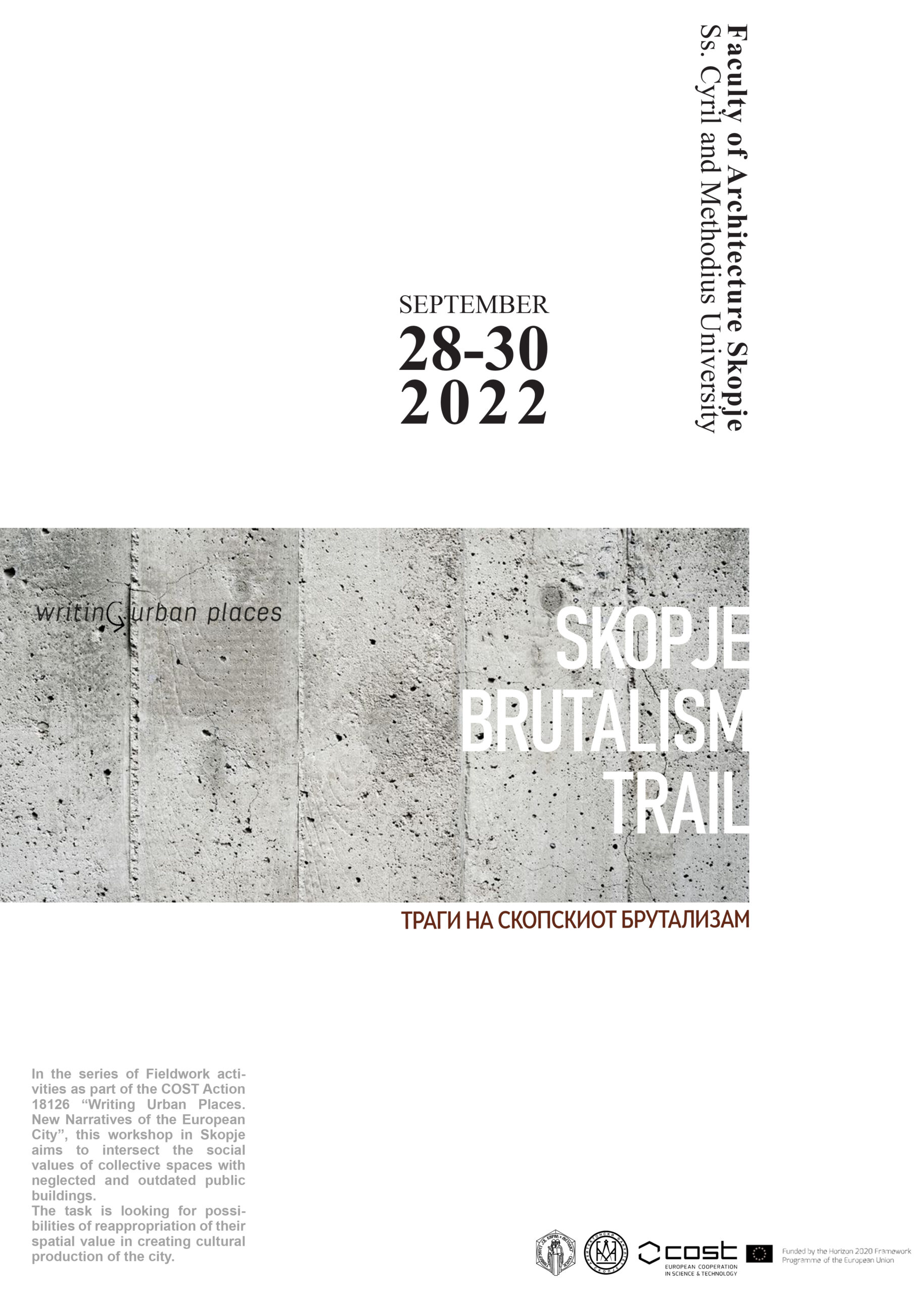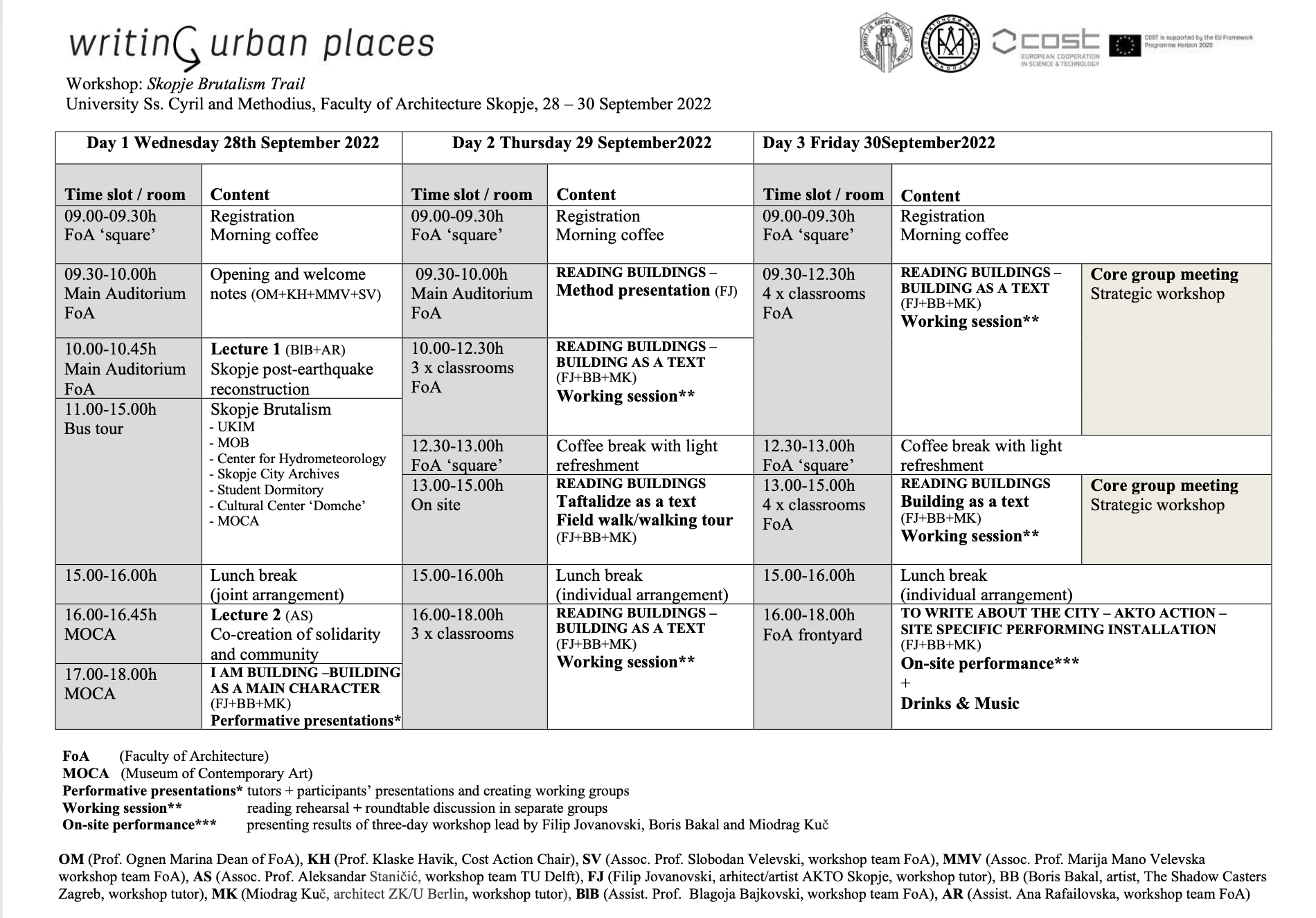28-30 September 2022

Brutalist architecture is part of the build legacy of Skopje, emerged in the post-earthquake reconstruction of the city after its devastation in 1963. The immense re-development occurred in the aftermath of the tragic event and lasted for 15 years, guided by the United Nations in cooperation with local authorities. Besides the unprecedented world solidarity, the process also included vast international design competition for Skopje city centre in which the team of the celebrated Japanese architect Kenzo Tange won. Alongside the process of re-building the city and efforts made for re-establishing its everyday life, numerous modern brutalist architecture masterpieces were built for the purpose of housing public life and state institutions. Almost sixty years after this brave and collective international effort, and thirty years in an endless socio-political and economic turmoil of Macedonian modern state, in the last decade various initiatives have taken actions aiming to understand and valorise specificities of this architectural legacy. Although many of them were inspired by the alluring formal appearance of the brutalist buildings and remain restrained only within their striking visual domain, some are trying to examine and then re-establish their lost social and cultural values in the everyday life.
As part of activities funded by EU academic program COST and its Action Writing Urban Places. New Narratives of the European City, the Skopje workshop aims to intersect the social values of collective spaces with neglected and outdated public buildings. It focuses on a building from the modern (brutalist) architectural legacy dating from the 1970s which served as a community centre, colloquially referred as ‘domche’ (a diminutive form of the noun ‘home’). The event serves as a platform in which the deteriorated condition of this once highly appreciated neighbourhood space could find its way back to the community. The aim is to explore the meaningfulness of architecture in relation to cultural production of urban space. The participants of the workshop would use the method of ‘reading buildings’ and conduct their subjective interdisciplinary research creating distinctive narratives about the building. These narratives should combine actual facts and fiction related to the building historiography, participants’ personal experiences taken from their own cultural context and onsite interviews with local residents. The implied method translates theatre-making protocols and use the narratives to build up artistic forms of expression that culminate in a form of ‘public rehearsal’ into which workshop findings will be presented. Combining narration and acting/performing creates emotional chronical of buildings’ past and present but also makes synchronicities that build up its possible future.
The tree-day event with members of the COST Action is part of an ongoing research by a group of local artists and architects that use public performances as action to provoke, educate and raise public awareness about the importance of this building, fighting against plans to demolish it and thus erase its social, cultural and architectural value. This workshop belongs to a series of similar projects entitled If buildings could talk conducted by the FR~U collective and ACTO festival of contemporary visual and performing arts from Skopje, in cooperation with the Shadow Casters collective from Zagreb, ZK/U from Berlin and Faculty of Architecture in Skopje as host institution fully organizing the event.
The program looked as follows:
